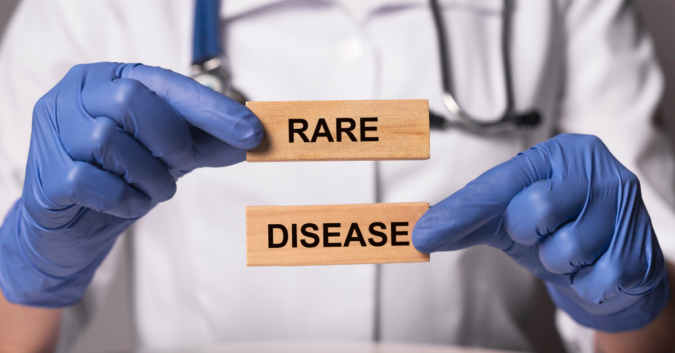Millions of men, women, and children are living with rare diseases, and – perhaps even worse – many of them do not even know it. And yet, by the end of the year, millions more people from all corners of the world will also come to learn that they, too, or a loved one, must adapt to a life-changing illness with little information or resources, and few treatment options.
By definition, a “rare disease” is an illness that affects fewer than 200,000 people. Currently, there are more than 7,000 known rare diseases.
In the United States, 25-30 million people are affected by rare diseases. This sobering fact means roughly 1 in 10 Americans suffers from a rare disease, and more than 50% of them are children.
It’s for these reasons – and many more – that Rare Disease Day plays an important role in our global society. For many who live with such an illness, feeling alone is a sad truth. Rare Disease Day serves as an important reminder that individuals suffering from rare diseases are not alone, and they, in fact, belong to a global community of millions.
On February 28, people from around the world will come together to share their stories, hopes, and ideas in an effort to grow awareness and support a common cause.
Rare Disease Day 2022
Rare Disease Day began in 2008, on February 29 – a “rare” day (in a leap year). Since then, the day has been observed each year on the last day of February.
Initiated by the European Organization for Rare Disorders (EURORDIS) and the National Organization for Rare Disorders (NORD), Rare Disease Day plays a vital role in the ongoing campaign to raise awareness and advocate for access to better information and treatments for those affected by rare diseases.
This year marks the 15th anniversary of the day since its inception, and each year has seen exponential growth and widespread support. This year, there are more than 600 events in 106 countries around the world.
Generating awareness is incredibly important for people suffering from rare forms of cancer and other illnesses — it not only shows them that millions of people support them, but that people around the world are starting to make rare diseases, and the research of them, a priority.
Awareness: Step One Toward a Better Future
Simply put, rare diseases are not given the attention they need. This fact alone sets off a chain reaction: Without due attention, rare diseases do not get the scientific research, funding, or organizational support necessary to make meaningful steps toward better understanding and treatment.
This makes increasing the visibility of rare diseases crucial. Without it, the lack of data and research about these diseases will continue to lead to serious complications, improper medical treatments, and untimely deaths.
Rarity alone makes research incredibly difficult. In order to make progress on the information we have about these types of illnesses and the medical hardships they create, scientific and medical researchers need better information, more funding, and access to patients.
As it stands, many doctors around the globe simply do not have the information they need to help someone with a rare disease. Factors like these can lead to the misdiagnosis of a rare disease, which can in turn lead to delays in getting the right kind of treatment.
Rare Disease Day is an opportunity for those affected to bring their voices together and be heard by industry executives, healthcare professionals, and legislators.
Find a Rare Disease Day event near you or get involved online in one of the many activities that will draw attention to the needs of many rare-disease communities.
Rare Disease Day and Mesothelioma
While the causes of rare diseases are many, and often attributable to genetics, some are the consequence of infections, allergies, and exposure to toxins. When it comes to exposure to toxins, like radon, mercury, and asbestos, the development of a disease is often preventable. Mesothelioma is one such preventable rare disease.
Caused by the inhalation or ingestion of asbestos fibers, mesothelioma develops when asbestos fibers get stuck in the protective lining that covers a person’s lungs, abdomen, or heart. Over a period of 20-50 years, cancerous tumors develop into the rare and devastating cancer known as mesothelioma. Each year, around 3,000 new cases are diagnosed. Because of how rare mesothelioma is, access to reliable information and treatment options can often prove limited for newly diagnosed victims.
Even though this particular disease affects a small portion of the population, raising awareness about it remains incredibly important: If people lack knowledge of the disease, they’re likely to not know about its signs and symptoms, the workplaces and buildings in which they might be exposed to disease-causing toxins, or the available treatments.
All of these factors could stop a person from getting the help they need and deserve.
It’s for these reasons why Rare Disease Day plays a vital role in our global community. Together, we can continue to build our resources and data bank, and test novel treatments and new medications for future generations of patients.
Each year, the efforts of rare-disease advocates bring new treatments and cures to people who are in desperate need of help. Yet there remain millions of people – many of them children – who lack the tools and support to live a healthier, safer life.
Do your part by joining the fight today.
